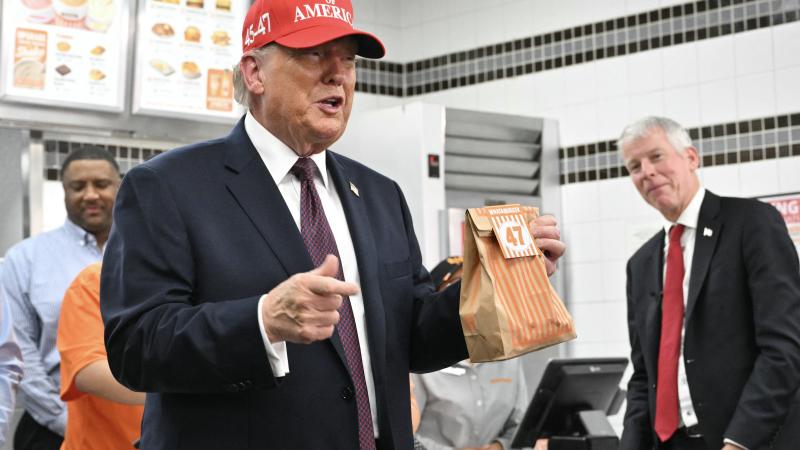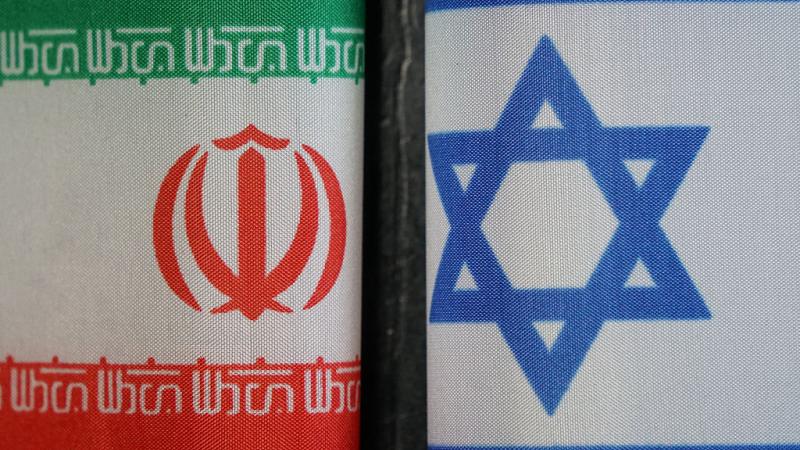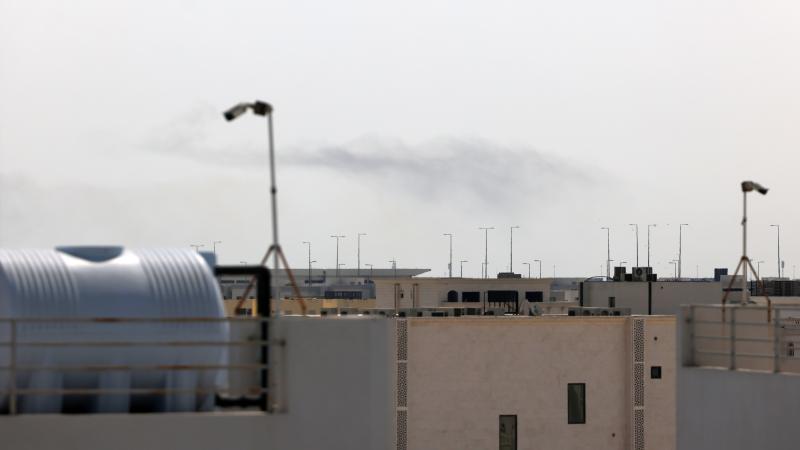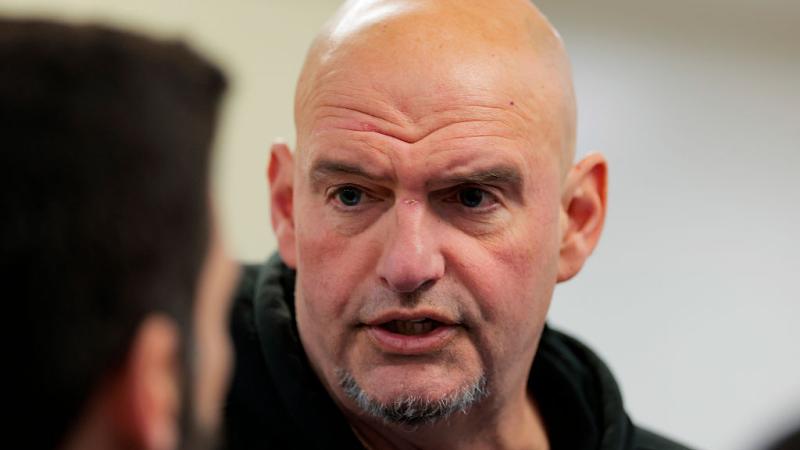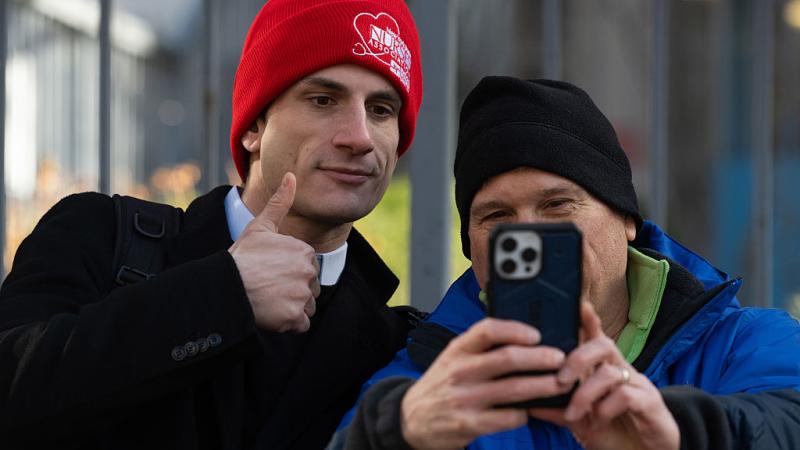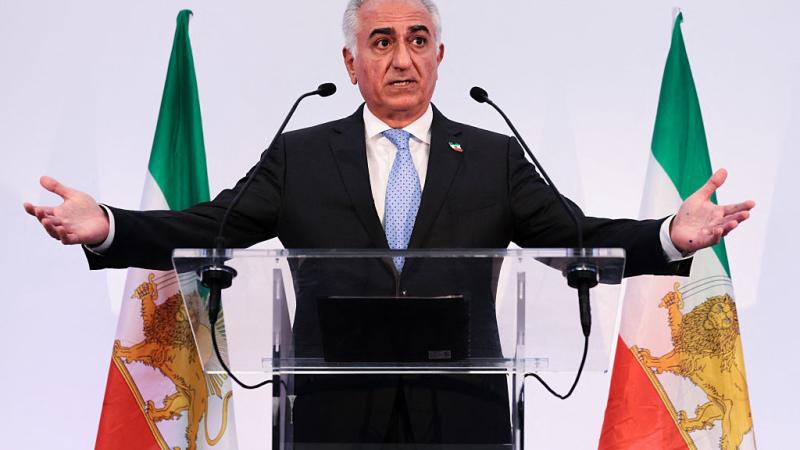White House adviser: Fighting human trafficking, modern-day slavery means protecting U.S. border
"At the end of the day, when you talk about safe and secure borders, really the people you're trying to protect are those women and their children ... who immediately get put into a trafficking lane and are never able to escape.'"
A senior White House adviser argued in a video interview with Just the News that in their criticism of President Trump's strong border control policies, the political left ignores that fighting modern-day slavery and human trafficking means successfully protecting U.S. borders.
"The president gets a lot of pushback on his immigration stance," said Brooke Rollins, Acting Director of the White House Domestic Policy Council. "But at the end of the day, when you talk about safe and secure borders, really the people you're trying to protect are those women and their children who were crossing, who are trying to get to America, who immediately get put into a trafficking lane and are never able to escape."
Her comments come as she joined Attorney General Robert Barr and White House senior adviser Ivanka Trump on Tuesday at the White House to announce $35 million in housing assistance grants from the Department of Justice for victims of human trafficking.
The grants will go to 73 organizations across the country to provide transitional housing assistance for trafficking victims, including rental, utilities or related expenses, such as security deposits and relocation costs. The grants will also provide funding for support needed to help victims locate permanent housing, secure employment, and receive occupational training and counseling.
The human trafficking crisis has become more urgent, authorities say, during the COVID-19 shutdown, when many victims are forced to shelter-in-place with their traffickers. The coronavirus has created an increased sense of urgency as a reported 25,000 — mostly women and children — are trafficked daily in the United States.
The Polaris Project is a non-profit that works to combat human trafficking and modern-day slavery. According to the group, there was a 40% increase in the number of crisis trafficking situations reported to its National Human Trafficking Hotline in a 30-day period after after shelter-in-place orders took hold nationally compared to a 30-day period before the first order was imposed. Comparing the same time periods, there was a reported doubling of situations in which people needed immediate emergency shelter.
Barr was visibly emotional at the White House roundtable announcing the DOJ grants, with his hand partially covering his face while listening to testimonials from nonprofit representatives and a trafficking victim, who said she was trafficked as a young adult and was repeatedly raped, but has since earned an associates degree and serves as a peer advisor to younger victims of trafficking.
"We have a culture that basically says from the left, 'If you don't agree with me, we're going to fire you, cancel you, whatever it is that we need to do, to only fit into our box,'" Rollins said. "And the idea that this president has led on the issue of human trafficking, that he's led on the issue of criminal justice reform, that he's led on the issue of opioid overdose, that he's led on the issue of suicide prevention — you know, these aren't typically issues you think of a Republican leading on — although they should because we always have — but when we do, he's not going to get the credit for that, but that's okay. Because he just doubles down and continues fighting for the American people. We keep doing transformative work that really affects every American, but especially those who need it the most."
At the White House, several other nonprofit representatives spoke about how human trafficking impacts their respective communities in places like Georgia, Detroit and Miami-Dade County.
"I think in a country where anything really is possible — in the best way — it's hard to imagine that we've got 25,000 mostly women and children in our country who are basically modern day slaves," Rollins said. "And it is one that is just hard to even comprehend. You see it on the news happening in other parts of the world where you can comprehend it where you've got dictatorships and tyrannies, and you've got just really bad people doing really bad things. But this is America, and so the fact that this president and Ivanka Trump, his senior advisor, and our Domestic Policy Council, that we've focused on it over the last couple of years, I think is really telling to the leadership that's happening in this White House and really what we want to change while we're here."
Rollins noted that each state has set up either a human trafficking office or hotline that people can call to report suspected human trafficking.
"I think it's important for people just put their differences aside and open their eyes and look at what's happening in their neighborhoods and make a difference," Rollins said.
WATCH THE FULL INTERVIEW HERE:


